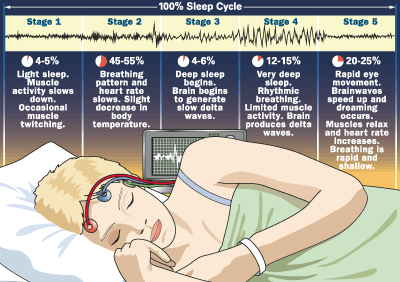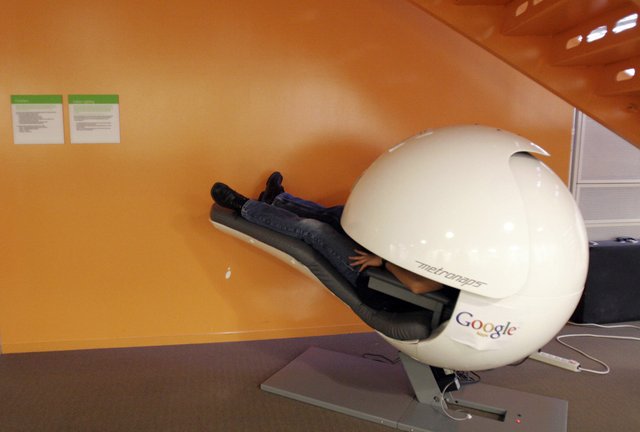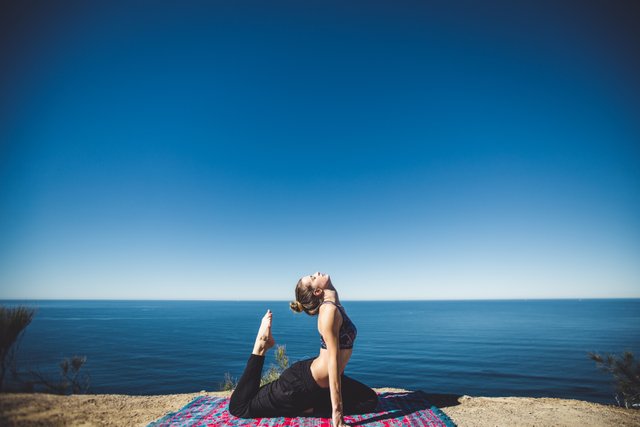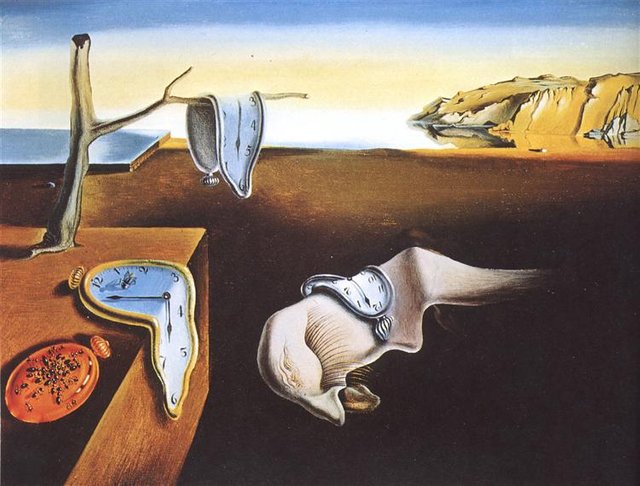How to Beat Insomnia and Master the Art of Sleep

Whether you are looking for a way to rid yourself of insomnia or just trying to attain a better quality of sleep, what follows are some tips and tools to beat your insomnia and to become a master of sleep. With enough practice, these tips and tricks can turn you from an insomniac into a sleeping beauty, or hibernating bear.
You can use these practices either as stand-alones, combine them, or use all of them in any order. But because we are all unique and different individuals, some of these practices may work better for some than for others, and it might require some experimentation to discover the ones which work best for you. Know however that learning how to sleep (better) can be a lengthy process, and while some of these practices may not immediately lead to a better quality of sleep, they will if you keep practicing. So persistance and experimenting with any one or more of these techniques for a considerable amount of time is the secret key leading to a higher quality of sleep.
How long should you sleep?
How much sleep we need depends largely on the individual. However, research has shown that less than 7/8 hours sleep at night is linked to such things as obesity, lack of concentration, increased risk of heart disease etc. If you care about your health it will thus be important to try and get at least 7 hours sleep every night. If you have trouble waking after 7 hours of sleep then this is a likely sign that you need more sleep. Which brings us to the next point.
Do not use an alarm clock
As we sleep in cycles which last an average of about 90 minutes, waking up before a cycle has ended will lead to waking up grumpy and stressed. Learning how to sleep is all about finding balance and building resistance. Starting your day with a spike in your cortisol (stresshormone) levels will take away from your build up resistance, which means that waking up with an alarm clock every day can eventually lead to trouble falling asleep again at night.

Instead, going to sleep at a set time every night will lead to greater balance and a proper functioning of your inner circadian clock (your inner biological clock). This, again leads us to the next point.
Sleep Hygiene:
While personal physical hygiene like your own hygiene, the cleanliness of your bed sheets and the lack of clutter in your bedroom can, because of the psychological effect cleanliness has on most people, lead to a higher quality of sleep, the collection of practices collectivized under the umbrella term sleep hygiene concern itself more with things like a regular sleep schedule, avoiding naps, avoiding bright lights for 30 minutes to an hour before sleep, avoiding alcohol and other drugs like nicotine and caffeine (especially for a few hours before sleep), etc.
There is however something to be said about the practice of napping. Bi- and polyphasic sleep is very common throughout the Mediterranean and Southern Europe, and research seems to affirm that if practiced the right way it has many health benefits, and it seemingly contributes to the longevity of many a practitioner of siesta. But for those of us who did not grow up as laid back Spanish or Greek country dwellers or island inhabitants, and instead live in a culture which is more stressful and demanding, it may may be harder to be able to and/or learn to implement a bi-phasic sleep schedule. Nonetheless it may be worth the experiment if you are in a position where you are permitted to nap during the day.

Sleep Pod @ Googleplex
Exercise and Yoga
While physical exercise and physical activity will certainly improve your quality of sleep, depending on the activity and the intensity of the activity, it may be best to do it in the morning. While light physical exercise in the evening shouldn't be a problem for most people, if you are someone who likes to give it their all, then take into account the light stress and damage put on the body and the accompanying hormones like adrenaline, norepinephrine and again cortisol (which are in this case mostly positive most of the time, but not always very sleep-inducing) which are bing released as a result. Other hormones released during your workout, like healthy levels of testosterone and dopamine, may actually improve sleep.
Yoga too is a great way to improve the quality of your sleep. Even though Yoga too is usually best performed in the morning and with an empty stomach, there are a few exercizes which can be done before sleep, in bed, and which don't require intricate knowledge or experience of Yoga. As not being able to fall asleep is often the result of a buildup of psychosomatic tensions (or blockages) in the body, easy Yoga stretches can help release those tensions.

Food, Drink, Toxic Food and Toxic Consumer Products
Many of the foods and products we consume contain toxic substances. Animals are fed antibiotics which end up in our meat, processed foods often contain many toxic chemicals which are detrimental to our health, cleaning products contain harmful chemicals which enter the pores of our skin and affect our health, and toothpaste (and even the drinking-water in some parts of the world) contains a toxins called fluoride amongst others. To improve the quality of our sleep it is of course essential to avoid such toxins. Eating healthy and fresh non-processed organic food, wearing gloves while cleaning or using milder cleaning products, and using only a pea sized amount of toothpaste for brushing your teeth (or non at all), will lead to better health, greater balance, and a better quality of sleep. Think also of any other products you might be using which might contain toxic chemicals like cosmetics, or anti-depressants. Proper research of the pros vs the cons of such products will make it that you'll be able to come to an informed decision on if it is worth to continue consuming such products, or not.
Like caffeine sugar too is a substance to avoid before sleep, at least in high amounts. Even though scientists are still debating whether it is a stimulant or a sedative (and more and more scientists seem to have come to the conclusion that it is a sedative), consuming large amounts of sugar before sleep will result in making your bloodsugars climb and then sharply drop down again as your body releases hormones to bring your bloodsugar level under control, and thus impairing your sleep.
To try and fall asleep with an empty stomach is however not advisable, and before calling it a night it is probably best to eat something which is neither too light nor too heavy. This way hunger nor feeling bloated will keep you from sleep.
Depending on how active your bladder is it may be wise to restrict fluid intake +/- 2 hours (or longer) before sleep. A full bladder while you're sleeping or trying to fall asleep will again mess with your sleep cycles and make it harder to fall asleep after you released yourself of the burden.

John William Waterhouse, 1874 - Hypnos and Thanatos, Greek Gods of Sleep and Death
A Natural Rhythm
As we have adapted ourselves to our natural environment, our circadian clock generally runs, or functions best when it runs in sync with nature. During the night, or in darkness, our brain produces melatonin, a hormone which regulates our bodily clock. A constant exposure to light will hinder the production of melatonin and make falling asleep more difficult.
For the nightowls and vampires among us this means that making sure that no light enters your bedroom and/or wearing a sleep mask will greatly improve the quality of your sleep. You will still need to supplement with vitamin D though.
Even though getting your vitamin D directly from the light of the Sun, and staying in tune with the rhythm of nature might still be the healthier option for most people, there is a case to be made for nightowls and late-sleepers, as the ones who are more intelligent and more creative, they might be carrying the heavy wheight of the future of the human race on their shoulders (see links in sources).

Grounding
Some of the techniques we discussed, like a healthy diet and exercise, do already contribute to a person becoming more grounded. Other grounding techniques include things like socializing (especially with individuals who are themselves grounded); physical work, connecting with the Earth, or a combination of the two (like gardening or washing the dishes). Spending time in nature, or walking barefoot (especially directly on the Earth) are also techniques to ground. On an intellectual level things like fact-checking will keep a person grounded.
A famous visualization technique which should be used in combination with the aforementioned grounding techniques is to either sit, with a straight back, or to lie down flat with your arms stretched out alongside your body and your legs uncrossed, breathing deeply and with a relaxed mind, visualizing (imagining) how from your tailbone (root chakra) there grows a cable or tree branch deep into the Earth, there catching root and expanding as far as you can imagine. Try to feel how through this root you are connected to the Earth and how as energy flows between you and the Earth you will become to feel more calm and reassured. You can also imagine how through these roots all the tensions in your body flows away.
This too can be done before or in combination with yoga stretches (try to feel where there is the most tension in your body and find yoga stretches which help release those tensions) and with the following techniques which too can be done before sleep.

Symbol of the Muladhara (or Root Chakra)
Deep Breathing
The breath might be the most powerful tool if it comes to calming and balancing the mind and ridding yourself of anxiety. There are many techniques which use the breath in various way to for example calm the mind, release nervous tension in the mind as well as in the body, attain different kinds of consciousness etc. One such technique to calm the mind is The Four Fold Breath. To practice The Four Fold Breath one slowly counts to four for as deep as one can, holds the breath for another slow count of four; breathes out in the same way (totally emptying the air out of the lungs), and counts to four again before proceeding with the inhale and so on. Repeating this for a couple of minutes will induce a deep state of relaxation bordering on a state of trance, and potentially to sleep (potent on its own but even more potent when combined with other techniques).
Also, breathing into your Hara will have the effect of bringing calm to your mind. The Hara, which is also called the Tanden, is an energy center which can be found about two fingers below your navel. Imagining your breath as energy flowing in through your nose and straight to your Hara and via the same route out again will have the effect of creating a pathway between all your Chakras through which blockages can and will be cleared. It's a sort of unclogging of your main energy pathways. As the Hara is known as the seat of the Soul in the tradition of Zazen it is here where our mind finds balance and inner peace.
This too can be practiced in combination with the previous and upcoming techniques. While being rooted and connected with the Earth imagine how your Hara and root-chakra are connected on the inside of your body and feel how all tensions in your body flow first through your Hara and then out and away into the Earth through your root chakra, while the Earth gives you sends you nourishing and strengthening energies back up.
Don't be surprised if with long enough practice you will become more sensitive to the visualized energy of your breath and energies in general flowing through your body. Energy will feel like a warm and tingly stream flowing through your body, and this physical flow of energy will begin to feel very strong the more sensitive you become. Experiencing energy this way is fairly common for practitioners of Kundalini Yoga, Reiki practitioners and other energy workers. With practice it will also become more easy to feel where energy is blocked, which makes it easier to locate and remove these blockages.

If the famous dutch daredevil Wim Hof can use deep breathing techniques to control his body temperature while bathing in ice-water and overcome the physical stress this would normally have on someone's body, there is no reason why you wouldn't be able to use the same techniques and overcome the stress affecting your mind.
Relaxation Techniques
Lie down on your bed or designated area of relaxation, with your arms beside your body and legs uncrossed, using the four fold breath you breathe in, concentrate on your feet, and as you breathe out you imagine them to become really heavy and relaxed. The same you do with your ankles, your lower legs, your knees, and so on all the way up to your neck, face and head, until every part of your body feels relaxed and free of tension. You basically "cut" your body in chunks and work yourself up till you reach your neck, then go on to relax every part of your arms and your hands (in unison), and then go on to breathe into and relax your neck and face followed by the rest of your head. The face can hold a lot of tension which means that it is sometimes best to breathe into every part of your face seperately, i.e. first your jaw, then your lips, your tongue, your cheeks, your eyelids, your eyes, your forehead etc.
A different but more potent (and also more difficult) version of this technique is to instead of imagining your bodyparts becominging really heavy, to tense the muscles with the in-breath and hold, and to release the tension with the outbreath and hold, then moving on to the next body part. If after practicing this technique you still feel tension somewhere in your body you can either repeat the technique in its entirety, or simply focus on the tense part singularly and treat it again.
Mindfulness Meditation
Can't sleep? Have you tried Mindfulness Meditation? While mindfulness is ideally practiced while seated in Lotus on a Pillow, a Master (whether a Master of Sleep or a Master of Mindfulness) can practice it anywhere, at any time, in any situation and in any position. Wouldn't it be extremely cool for you to become that Master?
Mindfulness meditation increases the levels of melatonin and decreases the levels of cortisol in your brain. Combined with deep breathing and persistance this is one of the surest ways to get yourself to sleep. While lying in your prefered position and breathing/meditating yourself to sleep won't give you as much of a meditation as a formal meditation seated in Lotus with straight back on a pillow would, the objective here is sleep and not necessarily enlightenment. However 20 minutes (or longer) of daily formal meditation will also greatly increase your chances of good sleep.

The Mindset of a Warrior
As already alluded to at the beginning of the article, in extreme cases the above techniques may not immediately take effect. Examples of such cases are, someone's life is or has been under threat recently resulting or having resulted in severe trauma; someone doesn't have one shred of resistance left and needs to build resistance first; someone suffers from severe mental illnesses like bipolar disorder or schizoaffective disorder, resulting in things like mania and loss of control of oneself, etc.
What is needed in such cases (and what would also be beneficial in everyone's life, so as to counter and overcome a whole variety of obstacles and situations) is a Warrior's mindset. This has nothing to do with hate or agression. We fight for Freedom, not to hate or deliberately behave agressively toward the things or entities (like people) who make us less free.
Taking upon oneself the mindset of the Warrior, will result in a greater abilitty to temporarily accept an ugly situation as it is and accept it if things don't necessarily go or turn out the way one would like or would have liked them to go. In such a situation, taking one step back and observe will eventually lead to two or more steps forward.
Feeling guilt over something you either did or didn't do while you know that you were giving it your all with your best intentions at heart is futile. Do however take your time to assess and learn from your past mistakes. It takes time to learn new things. Failing is part of learning. Give yourself the time to heal, repair the probable mess, pick up your sword and try again Warrior. Fight to win and the greater a warrior you become the greater your chances improve on the battlefield.
Protect yourself as much as you can when you are down. In the context of this article this would for example mean: Do you have to look at the mail and open at those 1000 dollar bills when you haven't had a second shut-eye for three days? Do you have to respond to and hangout with toxic people when called upon? Do you have to watch the news and see those horrible event flash before your eyes?
Sometimes we have to do things even when we are down, this too is part of being a warrior, but if it can be avoided then it is always best to opt for exactly that. Give yourself time to heal, and remember that a playful attitude and laughter are often the best of medicines.*

Ares, Greek God of War - Athenian black-figure amphora C6th B.C.
What's left?
Looking at the collection of exercises above as a system there are still some tweaks which can potentially improve the system, listed below:
While practicing mindfulness as a way to fall asleep, connect with your physical senses. Listen to the silence (or sounds outside, or the relaxing music you are playing) surrounding you for example. Burn some incense and use the smell as object of your meditation.
While in a state of deep relaxation through relaxation techniques and or the practice of meditation try to "see" with closed eyelids. Are there any images forming in the blackness in front of you? The anticipation will often result in the forming of hypnagogic images (sometimes static, and sometimes moving dream images). These images are normally a sign we are about to fall asleep. Anticipating and welcoming these images results in an earlier appearance of these images and once they appear sleep is very near.
While in a state of deep relaxation through relaxation techniques and or the practice of meditation, while still maintaining the deep breathing into your Hara, imagine yourself to be in an imaginatary world of your own making, far away from your worldly problems. You will be likely to slip from this world into the dream world, which means you will be asleep.
You can also invoke hypnagogic images through (while in a state of deep relaxation through relaxation techniques and or the practice of meditation and while still maintaining the deep breathing into your Hara) the process of visual free association. Just think of an object which comes to mind and visualize it. Then think of another object which comes to mind (which does not necessarily have to be related to the first) and visualize it. Just keep repeating this process (i.e. goldfish, spoon, star, clock etc.) until your brain takes over and begins to bombard you with objects and mental images of its own. When this happens you are about to fall asleep.
Should you wake up because of a full bladder at night immediately begin to breathe and meditate. Keep meditating until you relieved yourself and are back in bed and asleep again.
If you lead a sedentary lifestyle get up once an hour and move, walk or dance around a bit. Sitting (especially if the way you sit disregards ergonomics) for too long makes it easier for tensions and thus blocks to build in your body which means it will be more difficult and take longer to work them out of your system (thus creating the healthrisks associated with a sedentary lifestyle).

Salvador Dali - The Persistance of Memory, 1931
Not far from what one can expect a hypnagogic image to look like
I hope you enjoyed this article and/or that it may live up to its promise and help you to become a Master of Sleep. Feel free to leave a comment and to follow so as to encourage me to write more articles like this.
Thank you for reading..
-- echion
Sources and related links:
https://authoritynutrition.com/10-reasons-why-good-sleep-is-important/
https://www.psychologytoday.com/blog/between-you-and-me/201307/your-sleep-cycle-revealed
http://bodyecology.com/articles/reduce_your_cortisol_levels.php
https://www.ncbi.nlm.nih.gov/pmc/articles/PMC2812689/
https://www.zocdoc.com/answers/10223/can-consuming-too-much-sugar-affect-someones-sleep
http://www.livescience.com/53624-morning-person-genetic-influence.html
http://www.huffingtonpost.com/2014/10/23/night-owl-benefits_n_5877272.html
https://www.verywell.com/melatonin-and-meditation-88370
http://www.helpguide.org/articles/emotional-health/laughter-is-the-best-medicine.htm
http://www.nchpad.org/403/2216/Sedentary~Lifestyle~is~Dangerous~to~Your~Health
- A Warrior Mindset of course consists on much more than merely taking beatings. I have focussed here mostly on the relevance of the Warrior Mindset within the context of this article.
Thanks for the in depth article
Nice article with a lot of good valuable info. Upvote, followed, resteemed.
Wow thank you. I'm glad you liked it.
👍
Thank you.